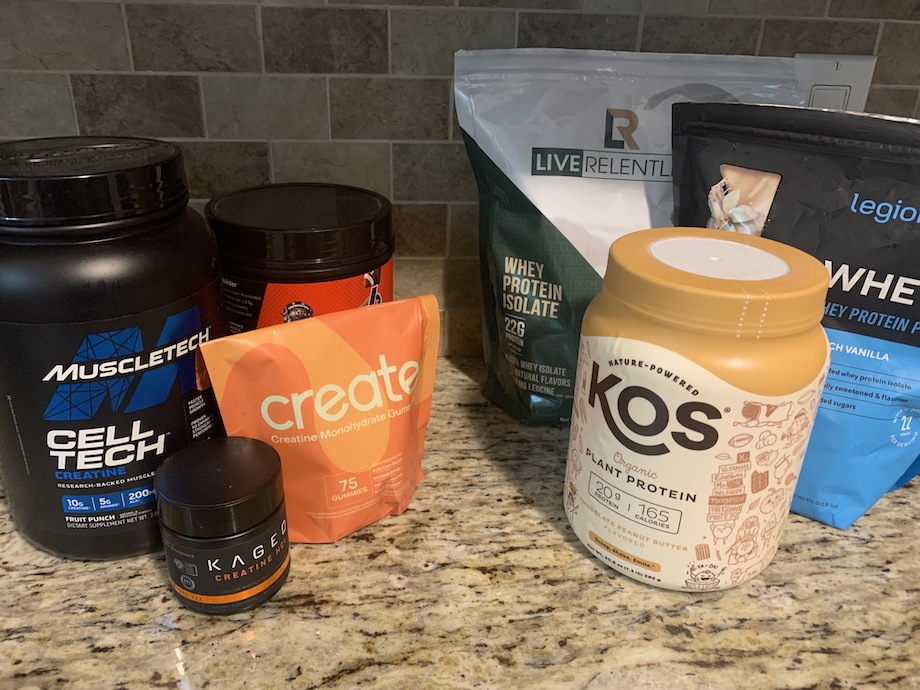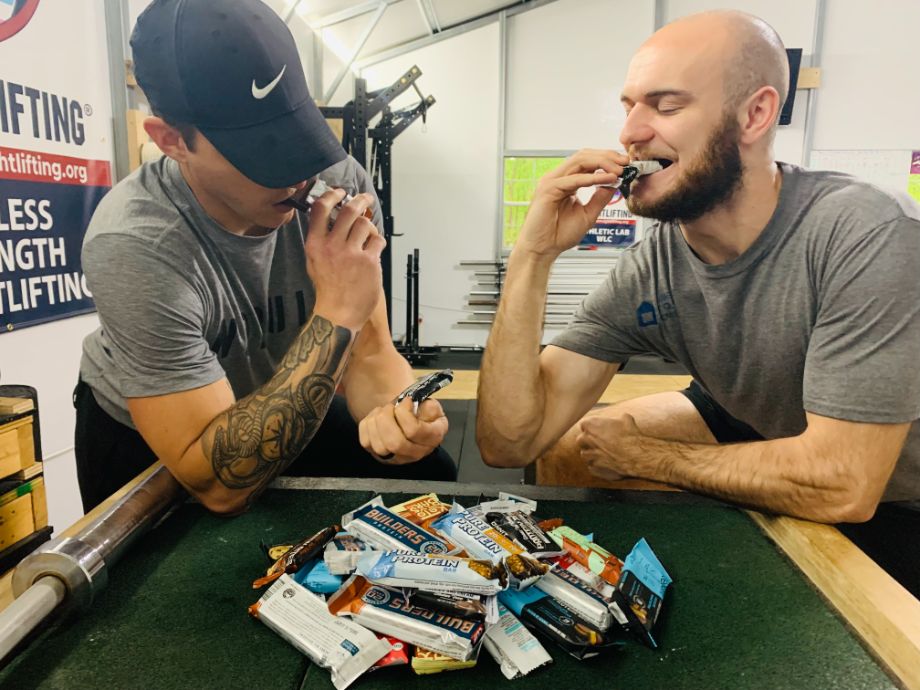When it comes to muscle-building supplements, creatine gets a lot of hype—and rightfully so. The effects of creatine have been studied for years, proving time and time again that it can improve energy production, muscle endurance, and even cognitive function. For those trying to maximize their athletic performance and gain lean muscle mass, it’s the bomb diggity.
But let’s be real—not every sports nutrition supplement is one-size-fits-all. Some people can’t tolerate even the best creatine supplements and have to opt for creatine substitutes. So, what do you turn to when you want muscle growth and creatine powders are off the menu?
We’ve got you covered. In this article, we’ll break down the science behind creatine and review several creatine alternatives that offer many of the same benefits without the side effects.
Medical disclaimer: This article is intended for educational and informational purposes only. It is not intended as a substitute for medical advice. For health advice, contact a licensed healthcare provider.
What Is Creatine?
Creatine is a naturally occurring non-protein amino acid best known for its role in energy production in the body. It’s found in small amounts in certain whole foods, such as red meat and fish, but your body also produces it in the liver, kidneys, and pancreas. It can be a critical part of meeting your fitness goals, as it’s necessary for energy production during short-duration, hard-hitting workouts like weightlifting and sprinting.
Research indicates that the average adult needs to replenish 1-3 grams of creatine daily1, depending on muscle mass. However, larger athletes who follow an intense training schedule may need upward of 5-10 grams of creatine daily to maintain their creatine stores.
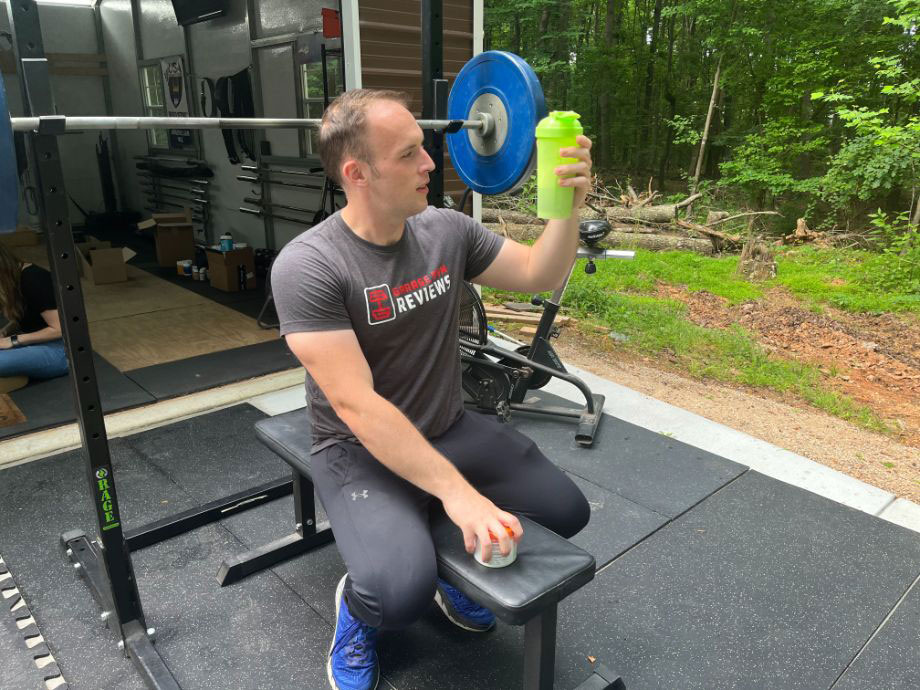
In the human body, creatine is stored in the muscle tissue as phosphocreatine, where it can donate a phosphate group to generate adenosine triphosphate (ATP). Since ATP is the main energy currency of muscle cells, creatine levels are incredibly influential during workouts that require short bursts of high energy, like resistance training.
If you need to boost your creatine levels and whole foods just aren’t cutting it, creatine supplements can help bridge the gap. For example, creatine monohydrate is the most commonly studied and used form of creatine—some pre-workout formulas even contain creatine monohydrate!
RELATED: Best Pre-Workout with Creatine
You may need to include a loading phase if you rely on creatine supplements to increase your creatine levels. A creatine loading phase involves taking a large amount of creatine (AKA more than the maintenance dose) for several days to build up your creatine storage as quickly as possible.
Benefits of Creatine Supplements
Creatine supplements offer many benefits to those trying to maximize their workout performance and build healthy, lean muscle.
RELATED: Creatine Benefits
Helps Increase Strength
Creatine can help increase muscle strength through its role in the production2 of adenosine triphosphate, or ATP. The body uses creatine, stored as phosphocreatine, to make ATP from adenosine diphosphate. The cool part? This phosphocreatine acts as a carrier for phosphate, which is used for rapid ATP generation in anaerobic settings—aka in the middle of your workout.
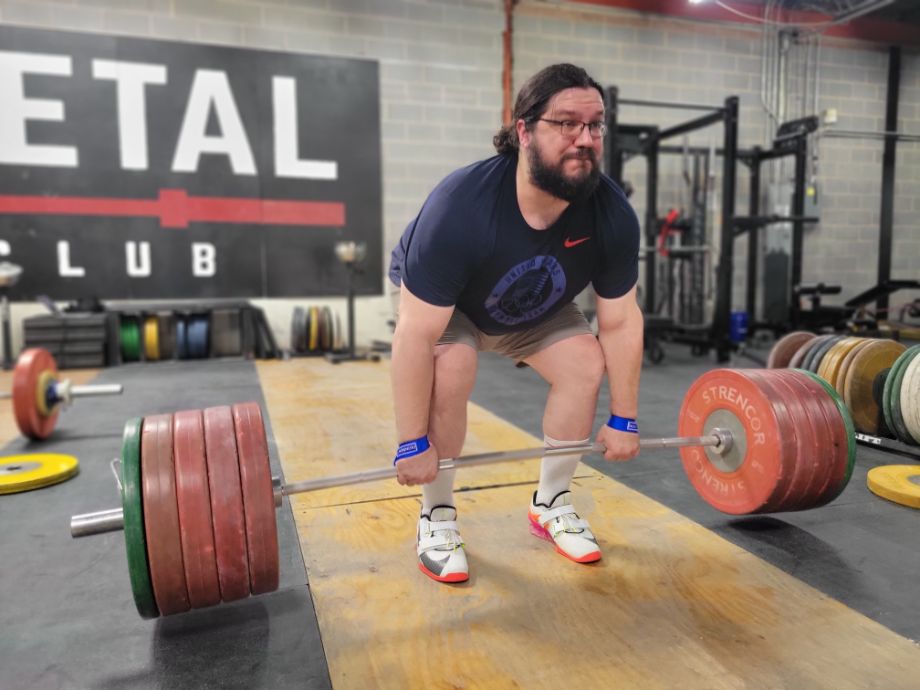
When your body can produce energy more efficiently, you have more power to put into those short-burst workouts. Maximizing your workouts during times of fatigue leads to improved muscle strength over time.
Supports Cognitive Function
Creatine even offers benefits outside of physical performance, as well. Some studies point to a connection between creatine and improved cognitive function, keeping you focused during your workout. And while more research is needed, some studies suggest that creatine offers neuroprotective benefits, ultimately improving your short-term memory3—you know, like trying to remember how many reps you just completed.
May Improve Muscle Recovery
Creatine may also support faster and more efficient muscle recovery between workouts. The ergogenic compound can help reduce inflammation and support your body’s efforts to repair damaged muscle4. Improved recovery time between workout sessions enables you to make the most of your training schedule and reduce the risk of injury.
RELATED: How to Use Creatine
Supports Muscle Gain
Creatine sees a lot of action in the bodybuilding and weightlifting communities due to its purported contributions to muscle growth. As muscle tissue is damaged during your workout, your body is triggered to repair that muscle tissue. Creatine helps by giving your body the necessary tools or building blocks needed to repair that muscle. As the muscle tissue is repaired, it grows in size.
RELATED: Does Creatine Help Build Muscle?
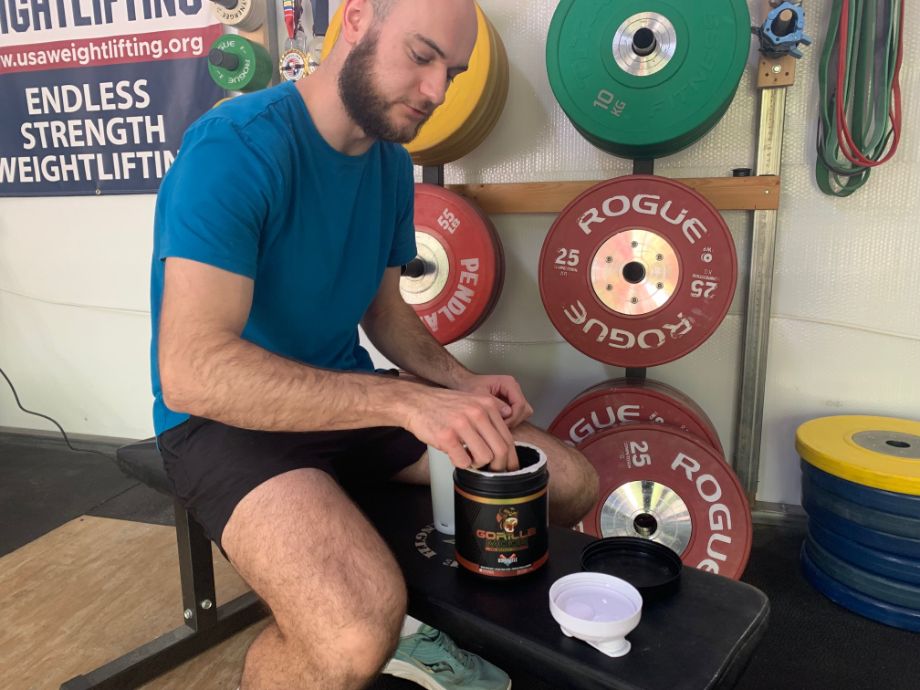
Remember, individual responses to creatine supplements will vary. These benefits sound wonderful in theory, but not everyone experiences the same positive outcomes. A registered dietitian or certified personal trainer can break down the science behind each supplement and help you decide if it’s the right fit for you and your fitness goals.
Why Would You Want a Creatine Alternative?
While creatine has been researched extensively for its effects on physical performance and muscle gain, it’s not a fit for everyone. Like all other sports nutrition supplements, it’s not without its risks.
Research shows5 creatine supplementation is generally well-tolerated when consumed in the recommended doses of 3-5 grams daily. However, excess creatine in your system can lead to unwanted side effects, including hair loss, diarrhea, dehydration, and muscle cramps. If you’re prone to these effects or already meet your creatine needs through diet alone, you may be searching for a creatine alternative.
Alternatives to Creatine
Creatine is a popular workout supplement among fitness enthusiasts, especially those who want to enhance their exercise performance and build lean muscle. But if traditional creatine supplements aren’t your jam, the market has many other options to boost your strength and maximize your workout efforts.
Beta-Alanine
Beta-alanine is often compared to creatine. However, while they share some similarities in their effects, beta-alanine operates differently. Like creatine, beta-alanine can help promote muscular endurance, but it does so by increasing carnosine levels in the body.
What’s so great about carnosine, you ask? Carnosine helps delay or reduce lactic acid buildup during your workout. With less lactic acid in your system, you can push the limits of your workout and reduce fatigue over time. For this reason, beta-alanine is especially beneficial for high-intensity activities, such as interval training or sprinting, requiring repeated high-energy exercises.
Branched-Chain Amino Acids (BCAAs)
Branched-chain amino acids, or BCAAs, are sometimes used as an alternative to creatine supplements. Like creatine, BCAAs are often used for muscle-building purposes. Branched-chain amino acids consist of three amino acids—leucine, isoleucine, and valine—often touted for their role in muscle protein synthesis, the essential pathway for muscle growth and repair.
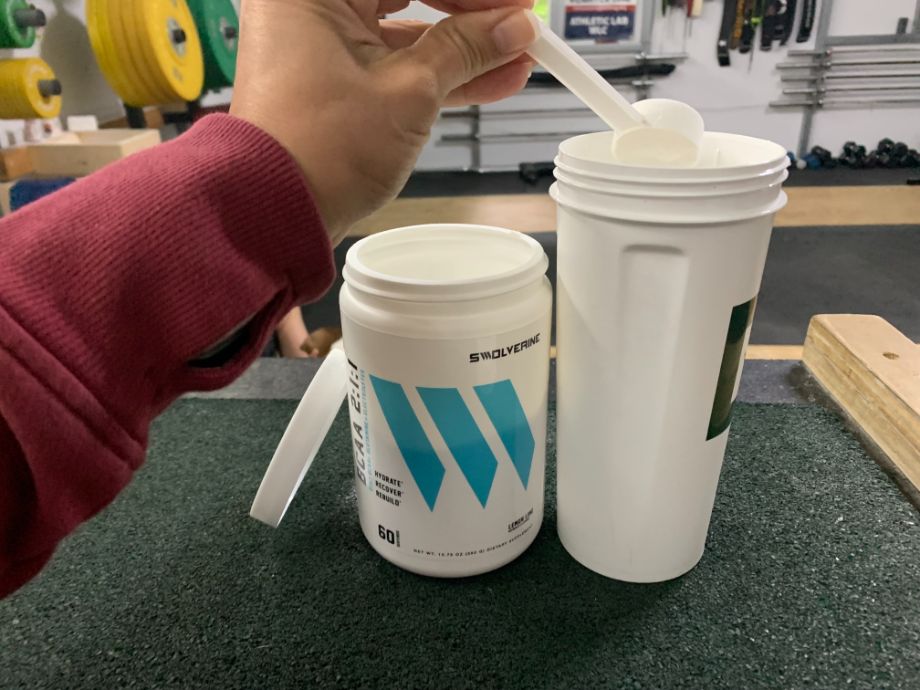
RELATED: Best BCAA
BCAAs also play a role in reducing delayed-onset muscle soreness or DOMS. After rocking an intense workout, many of us are waiting for that muscle soreness to set in. Branched-chain amino acids help reduce fatigue and soreness to promote a faster recovery, getting you ready for your next workout.
Some BCAAs also support your energy levels during your workouts. However, this will be a specific branched-chain amino acid supplement that contains a carbohydrate source and can help with glycogen stores, giving you more energy to pull from during your workouts.
Branched-chain amino acids also help prevent muscle breakdown, especially in situations that call for intense training or calorie restriction.
Whey Protein
Whey protein powder is a common go-to muscle-building supplement. It is derived from milk and contains essential amino acids necessary for muscle growth and repair. Whey protein is typically easy to digest, making it a convenient way to meet your daily protein needs, especially when your workout schedule calls for increased protein demands.
However, whey protein doesn’t contribute to energy production like creatine does. So, if you take whey protein supplements instead of creatine for muscle growth, be sure to fuel your workout with adequate carbs.
RELATED: Creatine vs Whey
Hydroxymethylbutyrate (HMB)
Hydroxymethylbutyrate, or HMB, is not a direct alternative to creatine. However, it is a leucine metabolite that can offer some of the same benefits6 through its own mechanisms. HMB can help with muscle preservation and recovery when included in a well-rounded fitness routine. It can help preserve muscle tissue during times of intense activity or catabolic conditions.
Nitric Oxide Boosters
Like creatine, nitric oxide boosters are often marketed toward strength-training athletes as a way to increase muscle performance. However, NO boosters operate differently than creatine supplements. Nitric oxide is involved in endothelial function7, widening your blood vessels and improving blood flow to help nutrients get to where they need to be. When your muscles get the nutrients they need to perform at their best, you often see muscle gain as a result.
Natural Creatine Food Sources
If you prefer to get your nutrients from whole food sources, you may be searching for natural alternatives to creatine supplements. Good news! You don’t have to look far. There are plenty of nutritious foods with creatine, such as:
Fish
Fish, especially herring and salmon, are an excellent source of creatine. Plus, they provide high-quality protein and potent omega-3 fatty acids. Tuna, cod, and salmon are also well-known for their creatine content.

Wild Game
Game meats are also rich in creatine. You can build your creatine stores by eating buffalo, elk, venison, and bison.
Red Meat
Red meat, especially beef, is one of the richest sources of natural creatine. The numbers will vary between meat types, but animal meats like steak, ground beef, lamb, and pork all contain naturally occurring creatine.
Still, while red meat is an excellent source of creatine, be mindful of the cuts you choose and your portions. Red meat can be high in saturated fats, which can cause unwanted inflammation and work against heart health when consumed in excess. Opt for lean cuts of meat when possible.
Cheese
While dairy products don’t contain nearly as much creatine as meat and seafood, it is a viable option for those who follow a vegetarian diet. Compared to other cheese sources, Parmesan cheese is highly regarded for its creatine content.
Pumpkin and Sesame Seeds
Unfortunately, there are no vegan foods that contain creatine. However, some plant-based foods contain all the amino acids needed to stimulate creatine synthesis in the body: methionine, arginine, and glycine8. Pumpkin seeds containing arginine and glycine are rich in protein and other vital nutrients. Same with sesame seeds—sesame seeds contain glycine and pack a punch nutritionally.

Nuts
Similar to pumpkin seeds, nuts contain the amino acids necessary for creatine synthesis to occur in the body. For example, walnuts and almonds contain hefty doses of arginine and several other important nutrients. Adding nuts to your well-balanced diet offers many health benefits in the gym and at home.
White Beans
Beans are also a staple protein for vegan and vegetarian diets. White beans, including kidney beans, contain arginine and methionine. So, in addition to their rich fiber profiles, white beans can help stimulate creatine synthesis.
Creatine Side Effects
Creatine is generally considered safe for the average healthy adult, but it may cause side effects on occasion. While many of these are myths that have been debunked, depending on who you ask, creatine side effects may include:
- Hair loss
- Dehydration
- Nausea
- Bloating
- Weight gain
- Muscle cramps
- Digestive upset
- High blood pressure
- Kidney damage
If you have concerns about potential creatine side effects, consider seeking guidance from a trusted professional. A registered dietitian can help you navigate the potential downsides of creatine supplementation and determine if it is an appropriate choice based on your health markers and wellness goals.
Creatine Alternatives: Final Thoughts
Creatine and its effects on exercise performance have been studied extensively, connecting many of the compound’s benefits to muscle gain and increased strength. Creatine supplements are considered generally safe for the average healthy adult, but that doesn’t mean they are without potential side effects.
If you don’t want to add creatine to your supplement stack, there are many creatine alternatives available that offer some of the same benefits.
- Beta-alanine promotes muscle endurance by increasing carnosine levels in the body.
- The branched-chain amino acids leucine, isoleucine, and valine help stimulate muscle protein synthesis.
- Whey protein powders can help you meet your daily protein needs, providing amino acids for building muscle.
- Nitric oxide boosters help improve blood flow to ensure your muscles get the necessary nutrients.
- Creatine can also be found in natural sources, including red meat, fish, cheese, and pumpkins.
- Remember: No amount of creatine or its alternatives can replace a structured training program, a well-balanced diet, and adequate sleep.
Creatine Alternatives: FAQs
What can we use instead of creatine?
You can find creatine in many natural food sources, such as game meat, fish, pumpkin seeds, and red meat. However, you can also rely on other sports nutrition supplements to piece together the same benefits that creatine supplements offer—BCAAs, whey protein powder, beta-alanine, and hydroxymethylbutyrate, to name a few.
Can you build muscle without creatine?
Yes, you can build muscle without supplementing creatine. Building muscle requires consistent effort in the gym and a well-balanced diet at home. Dietary supplements are only meant to bridge the gap as needed.
What supplements should I take other than creatine?
If you choose to avoid creatine supplements, you might consider piecing together other supplements to experience the same benefits. Branched-chain amino acids, beta-alanine, HMB, whey protein powder, and nitric oxide boosters can all promote muscle gain through various mechanisms.
What protein is similar to creatine?
Whey protein powder mimics many of the same muscle-building properties that are seen with creatine supplements.
These statements have not been evaluated by the Food and Drug Administration. This product is not intended to diagnose, treat, cure, or prevent any diseases.
References
- Kreider, R.B., Kalman, D.S., Antonio, J. et al. International Society of Sports Nutrition position stand: safety and efficacy of creatine supplementation in exercise, sport, and medicine. J Int Soc Sports Nutr 14, 18 (2017). https://doi.org/10.1186/s12970-017-0173-z
- Saito S, Cao DY, Okuno A, et al. Creatine supplementation enhances immunological function of neutrophils by increasing cellular adenosine triphosphate. Biosci Microbiota Food Health. 2022;41(4):185-194. doi:10.12938/bmfh.2022-018
- Sandkühler, J.F., Kersting, X., Faust, A. et al. The effects of creatine supplementation on cognitive performance—a randomised controlled study. BMC Med 21, 440 (2023). https://doi.org/10.1186/s12916-023-03146-5
- Hall M, Manetta E, Tupper K. Creatine Supplementation: An Update. Curr Sports Med Rep. 2021;20(7):338-344. doi:10.1249/JSR.0000000000000863
- Antonio J, Candow DG, Forbes SC, et al. Common questions and misconceptions about creatine supplementation: what does the scientific evidence really show?. J Int Soc Sports Nutr. 2021;18(1):13. Published 2021 Feb 8. doi:10.1186/s12970-021-00412-w
- Kaczka P, Michalczyk MM, Jastrząb R, Gawelczyk M, Kubicka K. Mechanism of Action and the Effect of Beta-Hydroxy-Beta-Methylbutyrate (HMB) Supplementation on Different Types of Physical Performance – A Systematic Review. J Hum Kinet. 2019;68:211-222. Published 2019 Aug 21. doi:10.2478/hukin-2019-0070
- Gonzalez AM, Townsend JR, Pinzone AG, Hoffman JR. Supplementation with Nitric Oxide Precursors for Strength Performance: A Review of the Current Literature. Nutrients. 2023;15(3):660. Published 2023 Jan 28. doi:10.3390/nu15030660
- Joncquel-Chevalier Curt M, Voicu PM, Fontaine M, et al. Creatine biosynthesis and transport in health and disease. Biochimie. 2015;119:146-165. doi:10.1016/j.biochi.2015.10.022


